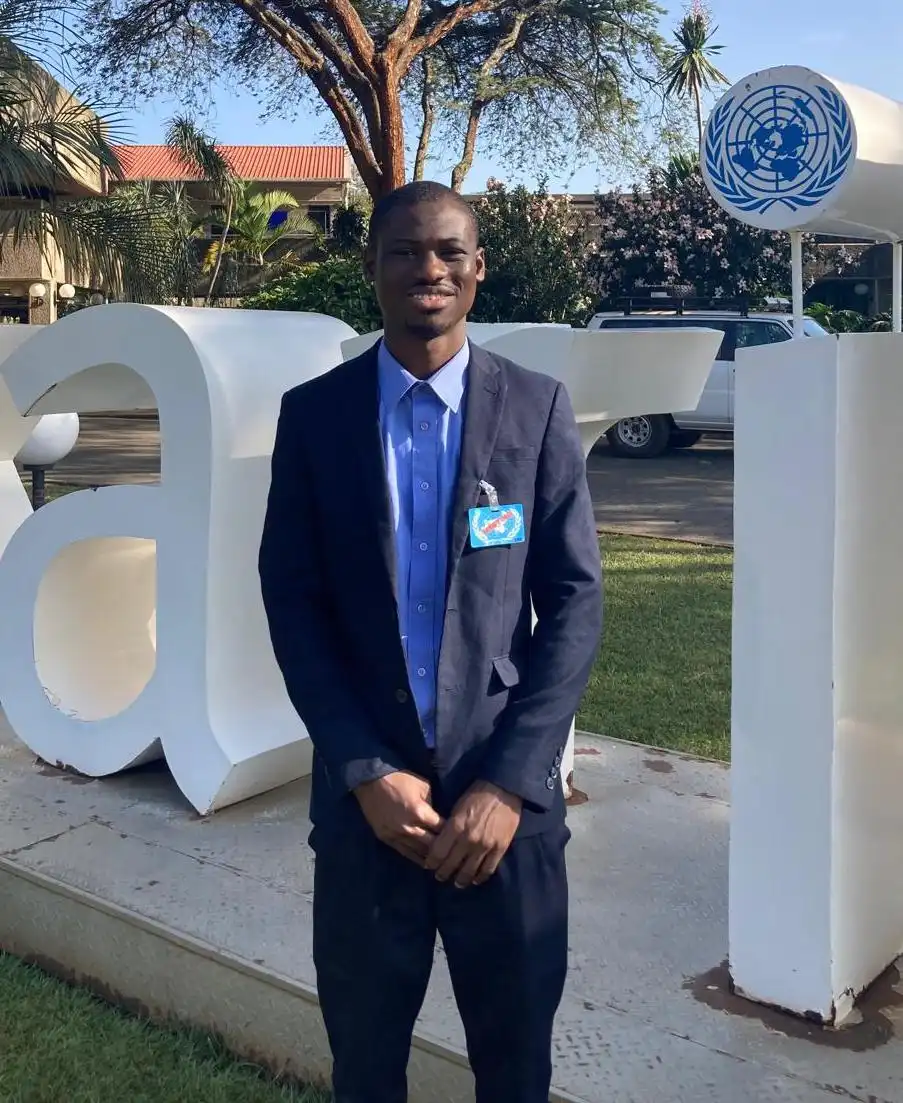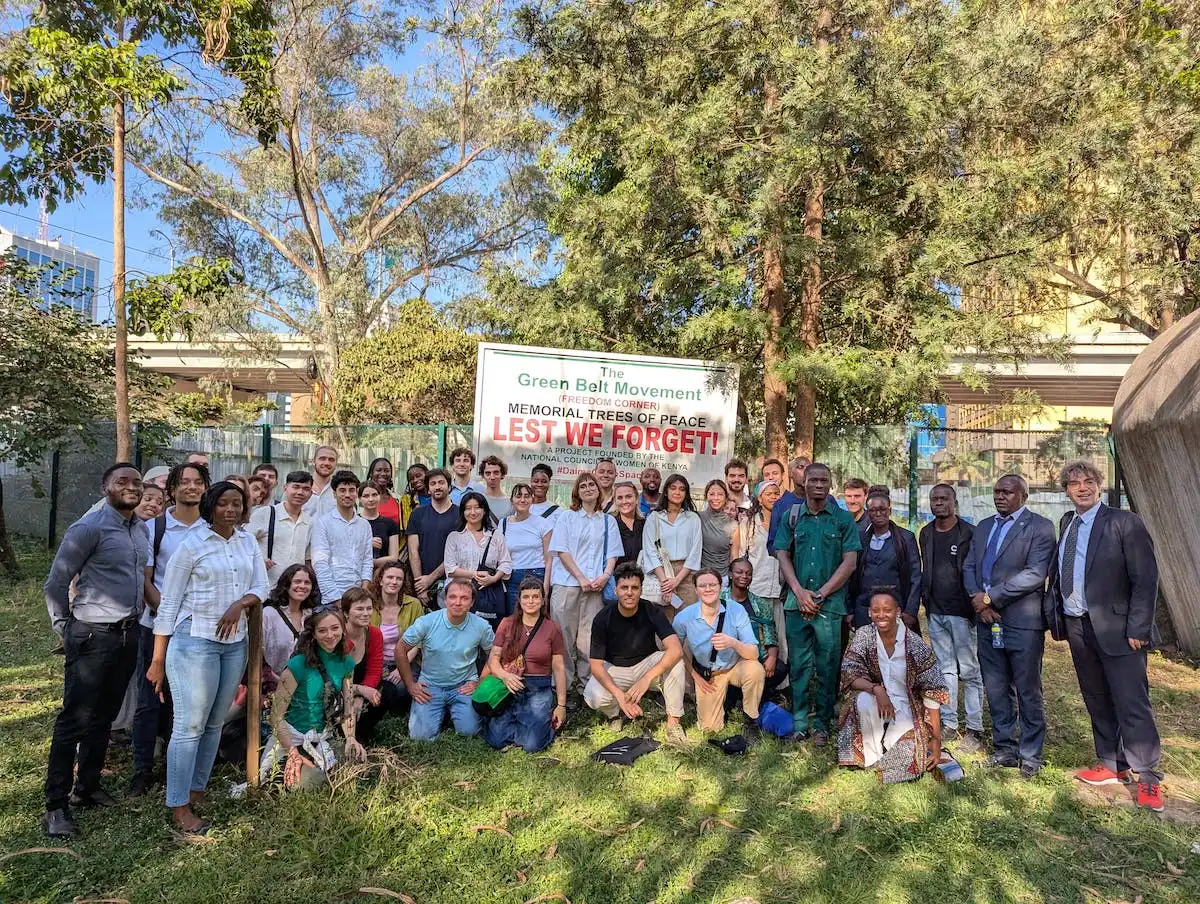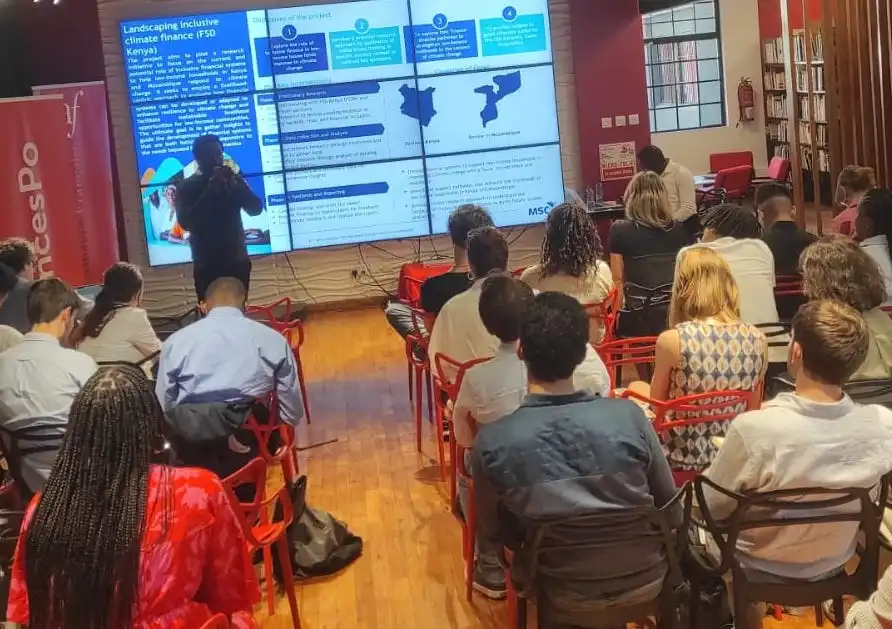Home>One Week in Nairobi to Study Urban Governance in a Large Metropolis

10.02.2025
One Week in Nairobi to Study Urban Governance in a Large Metropolis
What a better way to grasp the reality of urban governance in Africa than through a field trip to Nairobi?
The students from the Master Governing the Large Metropolis at the Urban School travelled to Kenya for a full week experience. Sciences Po permanent representative office in Nairobi, the “green city in the sun”, organised this urban expedition, titled “Nature in the City”, to allow the Master's students to delve into the complex urban governance and challenges of this major African city.
Learn all about it through the travel diary of Mastercard Foundation Scholar at Sciences Po Yussif Sulemana.
As part of the most interesting pedagogical approaches of the Master Governing the Large Metropolis (GLM), I was part of 40 students in Nairobi from 19-25 January 2025, for a field trip. It was an outstanding experience listening, interacting and reflecting on the presentations from different stakeholders and actors in the governance of Nairobi.
As the capital and largest city of Kenya with about 6 million population, Nairobi is a vibrant and dynamic metropolis known for its unique blend of urban and natural attractions. The city is also home to numerous international companies and organisations, including the United Nations Environment Programme (UNEP) and the United Nations Office at Nairobi (UNON).
The city hosts the National Park, National Museum, Uhuru Park, Central Park and several others which gave it the name “Green City in the Sun”. This blend of modernity and tradition, as well as its strategic importance in the region, makes it a fascinating city to explore and understand as urban governance enthusiasts.
The study trip was a blend of academic research presentations from university lecturers, project presentations by organisations, business presentations by startups, site visits and concluded with a conference, networking, and cocktail event at the French embassy in Nairobi.
Day 1: “Nature in the city” expedition
On the first day of the study expedition, I was excited to discover the mainstreaming of climate change through the Nairobi City County Climate Change Act 2024, an outstanding legislative framework that established a bottom-up approach to climate mitigation and adoption at community levels. An approach I see to breathe indigenous solutions to climate change through grassroot innovations.
Day 2: Unlocking Climate Financing
The second day focused on housing financing with presentations from:
- UNEP and UN-Habitat on urban resilience and decarbonised cities,
- the European Investment Bank (EIB) on grant financing for the “chui green line” through a fully Electric Bus Rapid Transit system with integrated economic activities,
- MicroSave Consulting on sustainable housing financing for the informal sector workers.
The day ended with a presentation by C40 Chief Financial Officer of Network for African Cities on building capacity within and between African cities to unlock climate finance through technical knowledge and best practices sharing.
The Bottom-up Transformation Agenda (BETA) that aimed at driving economic recovery and inclusive growth by focuses on key sectors with high impact to reduce the cost of living, eradicate hunger, create jobs, expand the tax base, and improve foreign exchange balances through targeted investments and a value chain approach was the most intriguing to me.
Day 3: All About Transports
The third day was on transportation infrastructure:
- a lecture on infrastructure violence: the case of the standard gauge railway and all the negative consequences vulnerable indigenous people went through during the implementation (including inequality in compensation payments, displacements, teenage pregnancies among others),
- an academic lecture on public transportation in Africa by the local transport management authority (NAMATA),
- a visit to SPIRO, the first e-bikes and battery company in Africa, to understand their business and its impact on climate adaptation,
- a visit to KPMG for a presentation and discussion on the G7 programme, mainly on a railway city and the BRT project in Nairobi with leading funding from France.
My worry was the indigeneity of infrastructure development and the long-term financial implications of external funded development, as well as the need for sustainable (country-owned) development financing to accelerate sustainable development.
Day 4: Housing and Informal Settlements
The first half of the fourth day was with AFD on their urban development strategy in East Africa focusing on the Kenya Informal Settlement Improvement Project 2 (KISIP) which focused on building on the gains of the first phase of the project in improving access to basic services in informal settlements.
This was a presentation and site visit to Kahawa Sewato slum to see the progress of implementation of two co-designed and co-produced community projects through the Urban Fabric Initiative (UFI) which serve as a laboratory for citizen participation facilitated by Kounkuey Design Initiative (KDI).
In my view, this was the most innovative initiative that stood out by its intensive indigenous design and implementation which exemplifies true participatory and inclusive urban development.
We also visited HyaPak Ecotech Limited, a start-up that creates green jobs through transforming water hyacinth and agricultural waste into bio packaging materials and sanitary pad and hairpieces. We ended the day with Shelter Afrique on their contribution to addressing the housing deficit in Africa through sustainable affordable housing.
Day 5: Women Farmers and the French Embassy
The fifth day was focused on:
- agriculture with Karakuta farms,
- a conference on the role of different actors and stakeholders in the urban governance,
- a networking event at the embassy of France in Nairobi.
The farm focuses on sustainable agriculture practices, food safety, and empowering women farmers in producing avocado and herbs for export to Europe and other Arabian countries which is in-line with the bottom-up economic transformation agenda of the growth export pillar within the agriculture priority value chain.
The study trip has unfolded the reality of urban governance in African cities and strengthened my resolve to champion scalable sustainable solutions for urbanisation in Africa. I have been enlightened on the need to build human and institutional capacity to control financial flows to achieve sustainable local financing for development. This will be a catalyst for sustainable development in the most urbanised and vulnerable cities of Africa.



